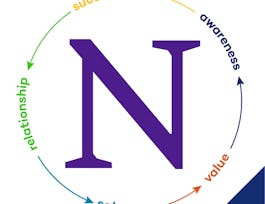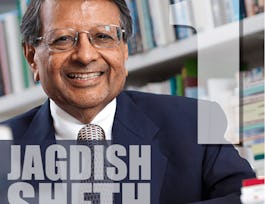The post-truth world is a divided and partisan environment in which factual information has been displaced by subjective and biased viewpoints. Facts and expertise no longer matter when isolated communities deny truth and scientific reasoning in favor of whatever information suits their needs or aligns with their beliefs. Social media and emerging technologies have the power to connect global participants in a meaningful way; yet, they have also led to disconnected communities that fail to communicate past their own self-imposed boundaries. In this course, you will gain insights to recognize your own biases and identify preconceptions in today’s dynamic social information environment. Through metaliteracy, you will practice self-reflective, metacognitive processes and reexamine fixed mindsets. Together, we will consider the importance of facts and expertise in reinventing a truthful world based on inclusive communities of trust. This course will empower you to be a reflective consumer and a creative, responsible producer of information, and to raise and share your voice in this post-truth milieu.


Empowering Yourself in a Post-Truth World
Taught in English
Some content may not be translated
3,914 already enrolled
(14 reviews)
What you'll learn
Learn how to address post-truth problems through metaliteracy
Evaluate your biases and those of others when interacting with information
Show that you are able to consume, produce, and share information in ways that you can be proud of
Details to know

Add to your LinkedIn profile
9 quizzes
See how employees at top companies are mastering in-demand skills


Earn a career certificate
Add this credential to your LinkedIn profile, resume, or CV
Share it on social media and in your performance review

There are 6 modules in this course
What is the post-truth world? In a post-truth world, subjective biases and uninformed opinions have challenged or replaced objective facts and scientific reasoning. Technologies originally designed to connect global participants have created a profound disconnect among users based on partisan ideologies and beliefs. Metaliteracy empowers learners to traverse this partisan landscape; it it supports metacognitive thinking to reflect on individual biases, as well as the preconceptions or prejudices that are embedded in content and participant viewpoints. As a metaliterate learner, you will learn how to take charge of your learning by identifying your own strengths and areas for growth. In this module we will introduce you to the metaliteracy model, which will prepare you to be an informed consumer and creative producer. You will explore the active roles you take on as a creator of new information, such as communicator, researcher, and teacher in collaborative social environments.
What's included
4 videos8 readings2 quizzes2 discussion prompts
This module will delve into the realms of expertise and authority in connection with both people and information sources. How are expertise and authority connected? How does one determine authority? What impact do one’s beliefs have on perceptions of authority? The module will also consider the impact that the participatory Web has had on our ability to find, process, and respect the voices of experts. There are many advantages to having the world at our fingertips--but how can we be more aware of our biases and those of others so that we can develop metaliterate ways of being responsible information consumers and creators within our own communities?
What's included
3 videos5 readings2 quizzes2 discussion prompts
In this module, we will explore how metaliteracy prepares individuals to understand the risks and opportunities involved with online environments. In addition, we will describe the active roles that metaliterate learners play in participatory environments to help build communities of trust. Generally, we create communities by working collaboratively toward a common goal and producing information that is authentic and reliable. As part of this module, we will work together to expand the definition of trust in online communities. This will include the exploration of challenges in the post-truth world when online environments can be divisive, untrustworthy and unsecure. How do we know what and who to trust in online environments, especially when the meaning of truth itself has diminished in the larger societal and political landscape? In this module, we will explore security breaches involving social media platforms in which the personal data of trusting participants was shared without permission. We will raise questions about the accountability of the social media providers as well as your responsibility to critically examine online platforms as you participate in these communities.
What's included
1 video3 readings1 quiz1 discussion prompt
This module will explore misrepresentation in constructed media to prepare individuals to be effective consumers and producers of information in a wide range of formats and settings. Information takes many forms, including text, image, and sound combined through multimedia and circulates instantaneously through a social network. The synergy of word and image is an especially dynamic combination that is powerful artistically and as a form of communication, but has also been used to misrepresent the facts. In a post-truth world, there has been an intentional misuse of images to communicate inaccurate or false narratives. The emergence of “fake news,” for example, intentionally juxtaposed words and images to convey misleading or downright false information. In this networked world of social media and mass communications, there has also been a change in how we understand established editorial filters associated with professional news gathering and publication. Social technologies have empowered individuals to document alternative perspectives once hidden. This has been an empowering development that effectively leveraged our connected world to challenge traditional hierarchies and assumptions, and often revealed injustices or brought new voices to the fore. At the same time, we have seen the advance of a post-truth world based on the proliferation of false and misleading information that has been created and shared through media without the benefit of proper vetting by experts. As part of this exploration, we will examine a number of related questions: If everyone is now making and sharing content, who plays the role of editor to disseminate truthful information? How do we prepare social media participants to discern what is contextually accurate? What is the role of the consumer in a mass-media environment?
What's included
2 videos2 readings2 quizzes2 discussion prompts
At this point in the course, you have an understanding of the issues surrounding post-truth. You have also learned about metaliteracy as an empowering model for confronting these problems. In the last module, you investigated how media can misrepresent the truth and took on the role of the editor to examine the impact of choices you make as an information producer. The original vision for social media was to create communities by connecting people in participatory democratic spaces, but this vision has been subverted by proprietary, political, and malicious interests. These could range from creating fake accounts that spread disinformation to cyber crime and online trolling. By raising and sharing our voices and building responsible communities of trust there is hope to move beyond the post-truth world. What is your responsibility in doing so? This module will introduce you to examples where individuals strive to empower and bring value to others by sharing their voices and experiences. As you continue developing your metaliterare learner strategies, you can help play a part in reclaiming the promise of the connected world.
What's included
2 videos6 readings2 quizzes3 discussion prompts
Through the creation and sharing of your final project, realize your vision for how you would reinvent a truthful world as an empowered metaliterate learner. Reflect on how you would apply the lessons learned in this MOOC to address the challenges of the post-truth world. Imagine how we would work together to effectively build a new future of truth and reason based on interrelated communities of trust. Think about how we move past the use of social media and emerging technologies to simply connect individuals in order to build online communities in which participants collaborate in purposeful ways to solve problems and make meaning. Reflect on what is required to move from post-truth circumstances to a future built on truth, trust, and both individual and community empowerment.
What's included
1 video1 reading1 peer review1 discussion prompt
Instructors



Offered by
Recommended if you're interested in Personal Development

Northwestern University

Arizona State University

University of Colorado Boulder

University System of Georgia
Why people choose Coursera for their career




Learner reviews
Showing 3 of 14
14 reviews
- 5 stars
64.28%
- 4 stars
28.57%
- 3 stars
0%
- 2 stars
0%
- 1 star
7.14%
Reviewed on Dec 17, 2021
New to Personal Development? Start here.

Open new doors with Coursera Plus
Unlimited access to 7,000+ world-class courses, hands-on projects, and job-ready certificate programs - all included in your subscription
Advance your career with an online degree
Earn a degree from world-class universities - 100% online
Join over 3,400 global companies that choose Coursera for Business
Upskill your employees to excel in the digital economy
Frequently asked questions
Access to lectures and assignments depends on your type of enrollment. If you take a course in audit mode, you will be able to see most course materials for free. To access graded assignments and to earn a Certificate, you will need to purchase the Certificate experience, during or after your audit. If you don't see the audit option:
The course may not offer an audit option. You can try a Free Trial instead, or apply for Financial Aid.
The course may offer 'Full Course, No Certificate' instead. This option lets you see all course materials, submit required assessments, and get a final grade. This also means that you will not be able to purchase a Certificate experience.
When you purchase a Certificate you get access to all course materials, including graded assignments. Upon completing the course, your electronic Certificate will be added to your Accomplishments page - from there, you can print your Certificate or add it to your LinkedIn profile. If you only want to read and view the course content, you can audit the course for free.
You will be eligible for a full refund until two weeks after your payment date, or (for courses that have just launched) until two weeks after the first session of the course begins, whichever is later. You cannot receive a refund once you’ve earned a Course Certificate, even if you complete the course within the two-week refund period. See our full refund policy.


